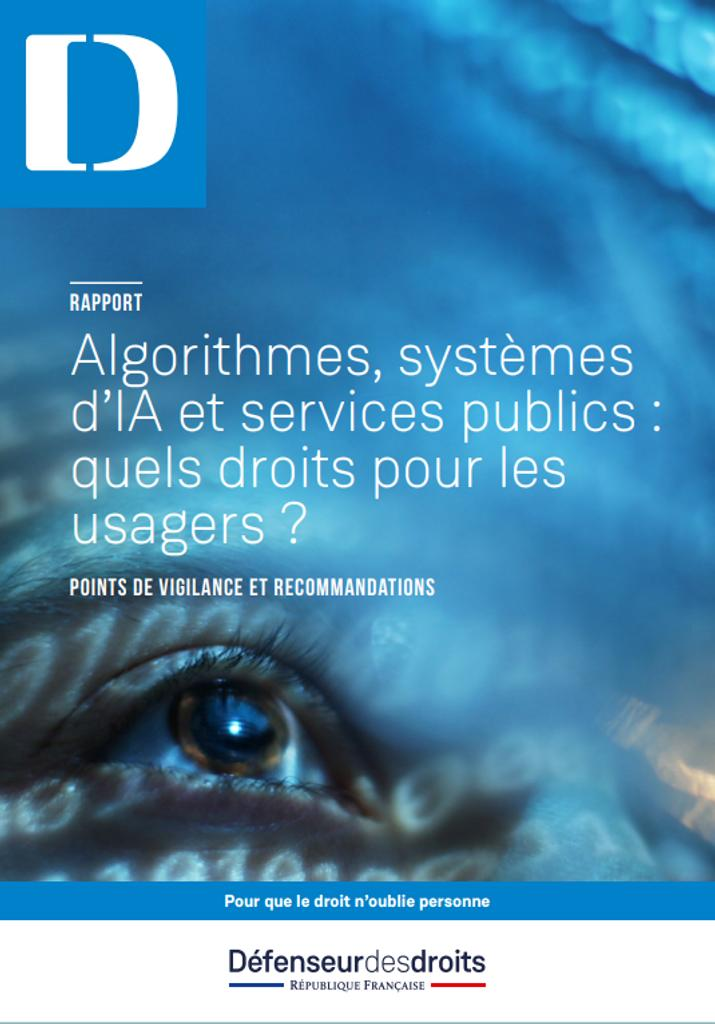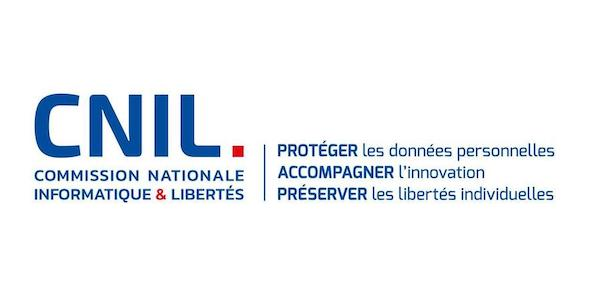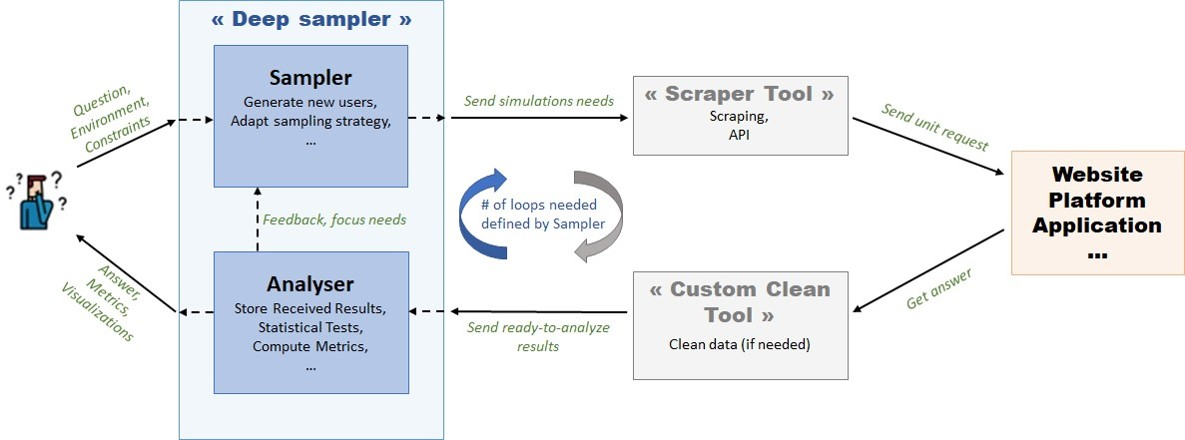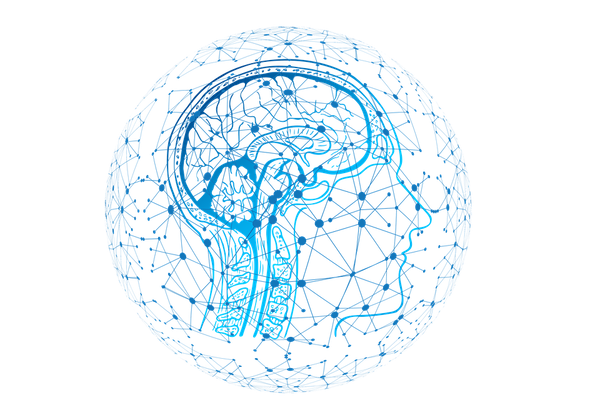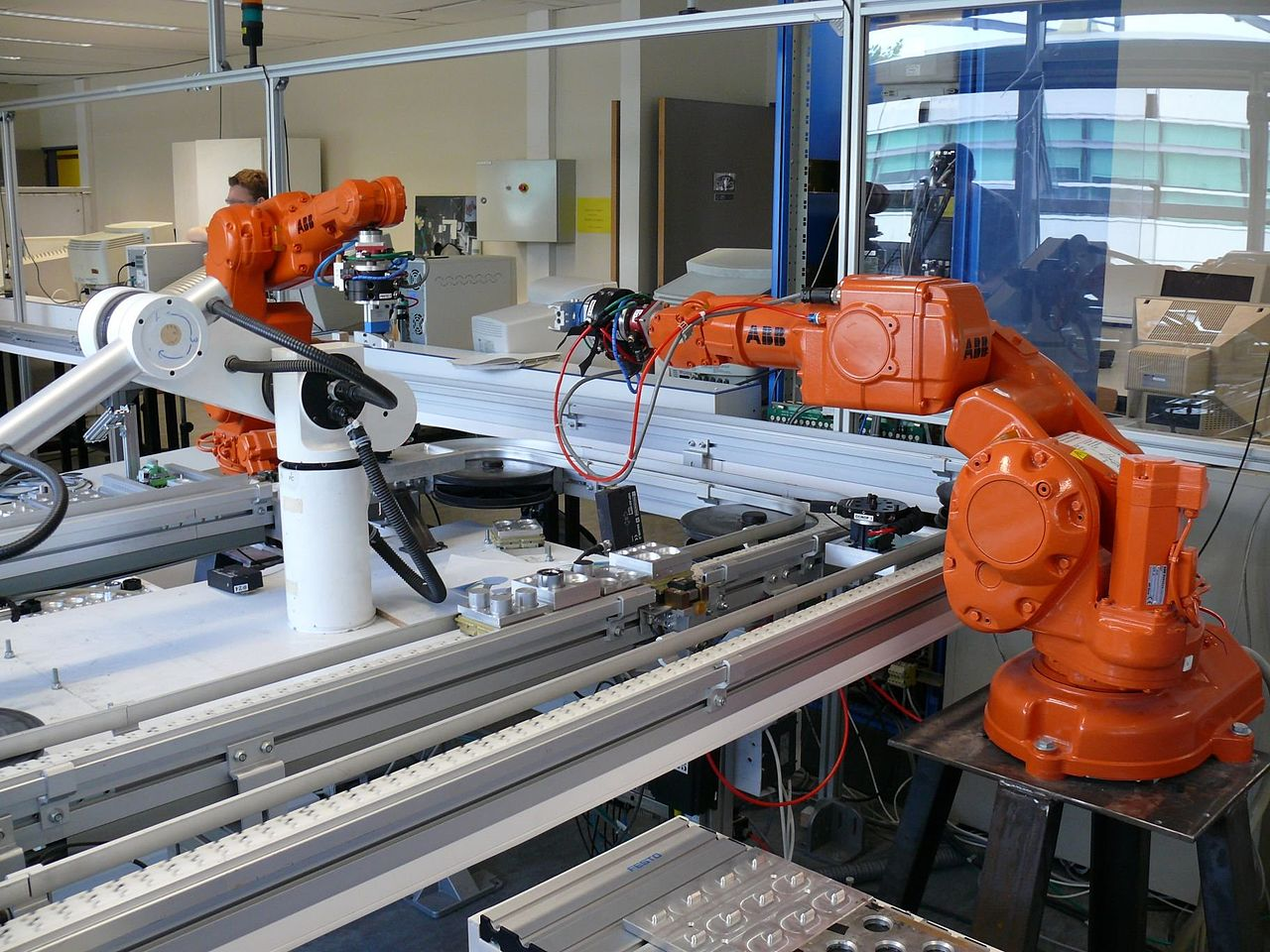The Human Rights Defender is often the last resort for users who are confronted with inextricable difficulties in their relations with the administration. "The numerous complaints addressed to the Human Rights Defender make him a privileged observer of situations where public services do not respect the rights and freedoms of users.The Defender of Rights has just published a report on the dematerialization of administrative procedures. report to the dematerialization of administrative procedures: documented by the complaints addressed to him and by the testimonies of associations and field actors, this report is full of examples and real-life cases.If the dematerialization of administrative procedures constitutes "a powerful lever for improving access to rights for all, " the Human Rights Defender reminds us,"this objective will not be achieved if the collective ambition of this process is limited to compensating for the disappearance of public services in certain territories and to favouring a budgetary and accounting approach. He warns against a dematerialization carried out "at a 'forced march', without taking into account the very real difficulties of a part of the population and the specific needs of certain categories of users".If "the State has taken the measure of these difficulties with the launch of the plan for an inclusive digital", the support of the public remains, according to the Defender of Rights, " incomplete and creates a significant transfer of burden to the associative fabric, when it is not a shift to the private sector and paying".
The dematerialization of public services, a progress for the access to rights which could be threatened by the conditions of its implementation
The first chapter of the report draws a very complete picture of the difficulties encountered by the public (and in particular by those who have difficulty with digital technology): social and territorial divide in access to the Internet and computer equipment; existence of numerous white and grey areas (which " contributes to hindering access to rights for people living in rural areas, and in particular for the most vulnerable, for whom transportation difficulties accentuate the problem "), problems related to dematerialized payments, "ergonomics of the sites is too often neglected".
Regarding "difficulties of access to computer equipment", the Defender of Rights observes, in this respect, " that beyond the equipment of a computer, it is often forgotten that the use of a scanner is necessary to carry out certain administrative procedures on the Internet") . It reminds us, in passing, that "the family allowance funds, through their social action (must ensure) that the beneficiaries of social action have access to the equipment and services to which they are entitled, particularly with regard to their financial participation" and mentions the existence of the "CAF equipment" loan, which allows the funds to facilitate access to computer equipment. (This zero-interest loan is managed by the family allowance funds at departmental level. The amount allocated and the conditions of access therefore differ from one department to another.
The Human Rights Defender is very critical of "the design and deployment of websites that are sometimes unsuitable". "Thus, even when access to the Internet is technically possible for users of public services, they may be confronted with technical problems or obstacles, or even with defects in the design or ergonomics of the sites and dematerialized procedures.
The Defender of Rights dwells at length on the procedures for issuing statutory documents online (national identity card, passport, driver's license and registration certificate): problems with the design of the site, undersizing of the system to absorb the flow of applications, lack of an effective mechanism for correcting errors, multiple problems with access to online services, blockages, errors and computer breakdowns. It points to a series of cases where dematerialized procedures do not take into account all the possibilities opened up by the law or all the situations of users. "The designers of the sites cannot "forget" to digitally create an existing legal system, thus preventing the person from carrying out his or her procedure.
In conclusion of this chapter, the Defender of Rights reiterates the principle of " a systematic alternative to paperless procedures": the performance of paperless administrative procedures must remain a possibility open to the user and not become an obligation. The user must be able to choose the most appropriate method of communication for his situation when dealing with the administration".
Incomplete support for users, a significant burden transfer to the associative network
The second chapter deals with the support of public service users.Dematerialization "often creates an additional divide for people who are already having difficulty with administrative procedures or the French language. It can also lead some people, who were previously autonomous in carrying out paper-based administrative procedures, to no longer be so when they are required to carry out dematerialized procedures.
"While 79% of users complete their routine administrative procedures without difficulty, this is not the case for a fifth of the population. The most frequent difficulties encountered in their relations with public services are repeated requests for supporting documents (38%) and difficulty contacting someone (38%). The dematerialization of procedures can also be a source of difficulties, since 27% of respondents say they do not have access to the Internet or have difficulty finding administrative information on the Internet. All these obstacles to completing administrative procedures lead 12% of users to abandon their procedures.
Based on the Digital Barometer, the Human Rights Defender draws attention to the heterogeneity of vulnerable groups when it comes to digital technology: " The 'digitally excluded' cannot be characterized according to simple criteria such as age, disability, place of residence or social category. All of the players interviewed expressed the need to deconstruct the image of users who are not comfortable with digital technology. Senior citizens may be perfectly socialized but not very attracted to digital technology, or on the contrary, they may be socially and geographically isolated but active on the networks; people raising their children alone may find digital technology an opportunity or, on the contrary, experience it as an additional constraint, etc.
In addition to the heterogeneity of the vulnerable public in relation to the digital world, there is also the multiplicity of difficulties of use. "Just as there is no single profile of a person in a situation of social difficulty, there is no single difficulty with the Internet either. In fact, there are people indifficulty because they do not speak French, others because they do not master the language of administration, others again because they are illiterate or do not master the computer tool, etc. There are also people in a situation of social difficulty because they do not speak French.There are also people in very vulnerable situations, such as the homeless or people with serious psychological problems, who may be totally excluded from the dematerialization process. Finally, there are people who know how to do it in principle, but who wish to be accompanied because they are afraid of making a mistake, of doing the wrong thing, etc.".
With regard to foreigners in particular, "the dematerialization of procedures, which was supposed to be an opportunity to improve these difficulties, has crystallized, even exacerbated, and above all made invisible the obstacles to access to public services: the undignified queues of users trying to reach the prefecture counter have been replaced by an invisible queue that manages to access the counters even less than before. Here, there is no technical problem at stake, but the lack of sufficient means given to telephone and digital devices that are saturated on a recurrent, even permanent basis.
Multiple difficulties of use
"Before being at ease with electronic administrative procedures, people must be at ease with the digital world as a whole and with computer tools,"says the Human Rights Defender.
" To be autonomous in the conduct of dematerialized procedures, the user must master the use of the Internet in its entirety. They must understand several other procedures before they can use the Internet": creating an email address, remembering passwords, creating a personal space, etc. In addition, the user will have to master the use of the different boxes or communication tools created, and know how to switch from one to another at all times. This permanent link between the personal accounts of the public services and the email address can be difficult to understand for some people. They do not consult their personal account regularly and may miss notifications of rights, decisions on their situation, and also miss the deadlines for appealing against a decision.
Mastering the full range of Internet uses requires, in particular, an understanding of the issues involved in consenting to paperless exchanges with the administration. "People do not always understand that they have consented to having dematerialized exchanges with social organizations. Therefore, the replacement of postal mail to which they are accustomed by communication exclusively by e-mail causes misunderstandings ( ...) Indeed,many people think that electronic exchanges only concern information and that paper remains the communication channel used for important documents such as refusal decisions or decisions involving changes in their rights.
Insufficient support for usersAccording to the Defender of Rights, the national plan for digital inclusion reflects "a collective awareness of the need to train people in the use of digital technology. The implementation of this plan (with its four components: detecting people who have difficulty with digital technology; offering human support in the process; training those who wish to do so thanks to the "Digital Pass"; and consolidating digital mediation players) is, however, too recent "for us to be able to fully measure its scope".
According to the Human Rights Defender, the 313 "digital points" intended to assist users with their online procedures in each prefecture, and then in the sub-prefectures, illustrate " the limits of assistance and support mechanisms set up late, in response to a crisis, instead of being thought out before the deployment of the dematerialization project ...". The Human Rights Defender deplores "the lack of anticipation of the need for support" and questions the choice to rely on young people in the civic service.
The Defender of Rights reviews the devices and support measures implemented by the social security institutions: self-service terminals for direct access to the procedures of the organization (1,328 terminals throughout the country for the National Health Insurance Fund alone), installation of connected computers, with printers and scanners, with or without staff to help people with their procedures in their physical reception areas (600 such reception points at the Mutualité sociale agricole); setting up personalized reception by appointment for complex situations (taxes and health insurance), "rendez-vous des droits" at the CNAF (allowing a user to see all his or her rights and to make the link with the services of other social organizations such as Pôle Emploi or the Health Insurance).
As for the Maisons de Services au Public (MSaP), the Defender of Rights believes that they provide "a general response that is very inadequate in relation to the need for support:" There are 1,330 of them throughout the country, but their "digital facilitation mission is in fact limited," in several MSaP, to providing PCs or tablets to access the operators' sites and carry out online procedures, without any real support in using online services. The heterogeneity of their operation is also due to the different possible holders: a community, an association, or the Post Office (which manages more than 500 of them). Even if they constitute a significant asset for restoring a local public service, the Defender of Rights considers that the MSaP cannot, in their current state, become the only places for receiving and accompanying people who have difficulties with their online administrative procedures, (the MSaP do not benefit from the competence and expertise of the agents of the reception services of the public services).
The Defender of Rights, moreover, considers that " telephone support is often deficient... The Defender of Rights and the National Consumer Institute (INC) conducted a mystery survey of the telephone platforms of several organizations in order to measure their capacity to receive, listen and respond to users' requests. The survey shows that the majority of callers are too quickly redirected to the organization's website, even if they do not have access to it. It also shows that the platforms do not inform the users about the alternative arrangements made by the organisations to support them. The Defender of Rights also notes that " the cost of telephone calls, which are often overtaxed (the numbers of the CNAM and the tax authorities are overtaxed by 6 cents per minute, the URSAFF by 12 cents per minute, etc.) and the sometimes long waiting times can discourage people from calling, preventing them, in the event that they have difficulty with digital use, from finding a contact person who can help them.
The necessary development of users' digital skills"Beyond the support that can be provided by dedicated structures, the exclusion that dematerialization can cause for a part of the population must be fought in the medium term by giving everyone the means to become digitally independent.The Human Rights Defender " welcomes the creation of the 'Digital Pass', which initiates a public policy of access to digital autonomy for all. However, he questions its capacity to really achieve this objective.Insufficient consideration of the consequences of dematerialization on economic and social actors
"The dematerialization of public services does not only disrupt the relationship between users and the administration. Its flaws and shortcomings have important consequences for other actors that are not taken into account. Its flaws and shortcomings "lead to new difficulties or an uncompensated overload of activity for the actors who, for various reasons, already assist users in dealing with their difficulties (associations, social services, justice and law centers, points of access to rights, delegates of the Rights Defender, multimedia and multiservice information points, communal social action centers, town halls, relatives, etc.)".
The dematerialization of public services has important consequences on the activity of many associations or professionals of the social sector: "It forces them to do what the public service should do, that is to say to accompany the users and to organize their access to public services, and this without financial compensation allowing them to have the means or even without particular support of the administrations and services concerned, that is to say without privileged access or faster than the user himself through a dedicated software or an identified contact within the structure which dematerializes".
Dematerialization thus requires these associations to "acquire new skills (the creation of an email box, a password, a personal space on the website of a social organization as well as the management of the request as such), but also to take charge of new users, who were previously autonomous in their relations with the administration. Assuming these new tasks linked to the digital transformation of relations between public services and users leads to an increase in the length of time the user is taken care of, as well as multiple difficulties relating to the protection of personal data (passwords, identifiers, access to personal and administrative email accounts, etc.) and their storage.
Municipalities, especially small rural ones, are sometimes faced with the same difficulties.
The development of private service providers linked to the shortcomings of public dematerialization processesThe difficulties users have in completing their administrative procedures electronically have opened the door to private service providers who "offer to carry out, for a fee, certain administrative procedures (requesting a residence permit, a birth certificate, a driver's license, etc.) in place of the applicants. Users who are not always aware of the possibility of carrying out these procedures free of charge via public websites " therefore find themselves paying these third parties to carry out a procedure, thinking that payment is compulsory. This confusion also leads to the risk of fraud for users, who mistakenly think they are using labeled third parties.
People with disabilities, protected adults and detainees: those left out of the dematerialization process
The process of dematerialization of administrative procedures poses a particular question for certain categories of people who, for various reasons, are in fact "prevented" from accessing it: people with disabilities, protected adults and prisoners.
While some public websites are considered to be "models of accessibility", for example, the website servicepublic.fr or the website of the Council of State, the Human Rights Defender notes " that most of the State's public websites are still not in conformity with the regulations in force and that the dematerialization of administrative procedures, due to the inaccessibility of websites, constitutes an additional fracture in access to public services and, in so doing, a breach of equality in access to rights for persons with disabilities.
The specific situation ofprotectedadultsis"rarely taken into account in the context of the dematerialization of public services. This is particularly true for tax returns and for the online pre-application system for national identity cards. The dematerialization of administrative procedures also leads to difficulties in managing the various digital accounts of protected adults for which the judicial representative is responsible.
With regard to detainees,the Human Rights Defender reminds us that deprived of their freedom of movement, they retain most of their rights, which they must be able to exercise: recognition of children, issuance of identity papers, preparation of retirement files, application for legal aid, etc. In the absence of an Internet connection, the Defender of Rights observes that "it is currently impossible for detainees to access their rights... The dematerialization of administrative procedures is nevertheless an opportunity to be seized in order to facilitate detainees' access to their rights by allowing them to carry out administrative procedures remotely.
Summary of the main recommendations
Maintain several ways of accessing public services
Adopt a legislative provision within the code of relations between users and the administration requiring the preservation of several modalities of access to
public services so that no administrative procedure is accessible only by dematerialized means.
Taking into account the difficulties for the users
Create a protection clause for users in case of technical problems
so that they are not considered responsible for the non-completion of the process.
Establish the principle of sending paper notifications of award,
of withdrawal or revision of rights with deadlines and appeal procedures, unless the person expressly consents to dematerialized exchanges in advance.
Guarantee a timeframe for making rectifications in the context of a dematerialized administrative process.
Provide for legal exceptions to the dematerialized payment obligations imposed by the regulations, and that, whatever the dematerialized procedure, the existence of a payment method other than those linked to the possession of a bank account be guaranteed.
Identify and support people with digital difficulties
Organize an evaluation test of the fundamental learning of the use of digital technology during the defense and citizenship day.
Systematically assess the support needs related to dematerialization projects, provide dedicated resources and explain the measures taken or to be taken to address them.
Redeploy part of the savings generated by the dematerialization of public services towards the implementation of sustainable user support systems.
Establish a local public service bringing together a representative of each social organization, the tax authorities, the employment office, a social worker and a digital mediator to provide general and quality support to the population, especially the most fragile.
The level of implementation of the new system could be adapted according to the needs of the territories.
Improve and simplify paperless procedures for users
Promote the use of a unique identifier to access all dematerialized public services.
Improve user information to increase awareness of free services
administrative procedures and put an end to the practice of referring users to a private paying service.
Train the coaches
Strengthen the initial and ongoing training of social workers and public service receptionists in digital use, to
the detection of people in difficulty and their support.
Train civic service volunteers to welcome vulnerable people and mobilize these volunteers not to replace the reception agents but to complement the mobilization of the organization's agents who dematerialize procedures.
Take into account specific audiences
To allow all persons deprived of their liberty, particularly in prisons, to have effective access to the websites of public services, social organizations and online training sites recognized by the Ministry of Education.
Rapidly generalize dual access to personal accounts on all public service sites, one for the protected adult and one for the legal representative, adapted to each mandate.
Systematically implement appropriate measures to allow people with disabilities to effectively access their rights in the event that it is proven impossible to make an existing website accessible and pending the implementation of a site that meets accessibility standards.


